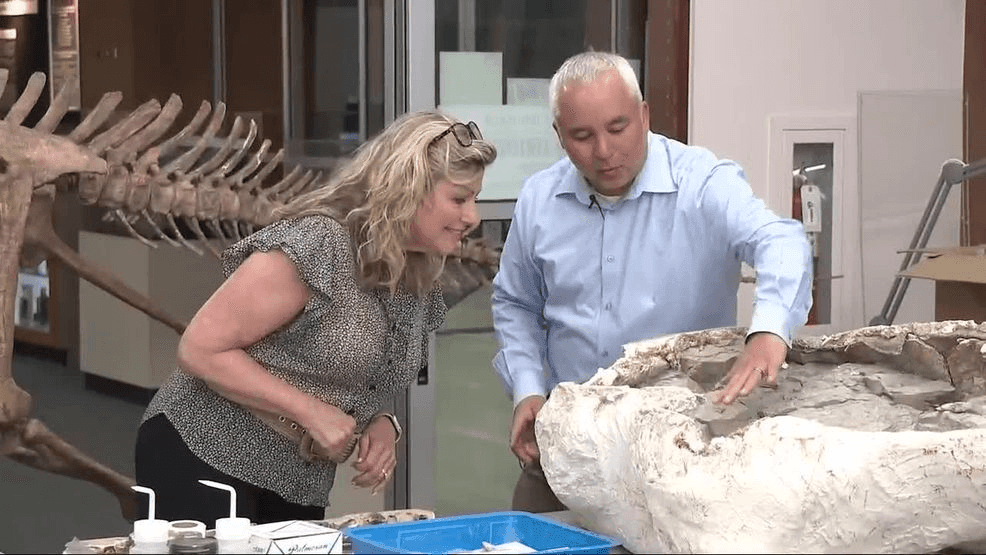BIRMINGHAM, Ala. — Jun Ebersole, a leading paleontologist at the McWane Science Center, is shedding light on Alabama’s rich prehistoric history through his work with fossils. Ebersole, who is the director of collections at the center, recently shared insights into the fascinating world of ancient creatures found beneath Alabama’s soil.
“Swimming sea monsters,” Ebersole said, referring to the mesosaurs he studies. One such fossil, discovered in Green County, Alabama, boasts a skull measuring four and a half feet long. Ebersole and his team of student volunteers work in a public laboratory at the McWane Science Center, where they meticulously uncover and study these ancient remains.
“This is an example of some of the things we are working on in the lab today,” Ebersole said. “This is what we call a field jacket. So when we find a fossil skeleton out in the field, it’s too hard to separate the bone from the rock out there… too hot, too muggy, takes too long. So we bring back that entire chunk of earth back to the lab… so we can do all that work here with specialized tools.”
Ebersole’s work includes the discovery of a new dinosaur species, “Eo Tracadon,” found in Montgomery County, Alabama. “There is only one set of bones of this in the world, and it’s here at the McWane Science Center,” he said. The skeleton is the most complete found on the eastern half of the United States.
Using a 3D scanner, Ebersole has reconstructed the dinosaur’s bones, allowing for a replica to be displayed while the original fossil remains protected. “Being the only one of its kind in the world… we have to keep them in special cabinets so we can preserve them, so it really is like having the Mona Lisa,” Ebersole said.
For Ebersole, sharing these discoveries is paramount. “As a scientist, it’s really pointless to have discoveries and not be able to share them with the world,” he said. “It’s the best job in the world… I can visit any time period that I want… to really tell the story of the history of life in one place you can’t do that anywhere else.”
The McWane Science Center houses thousands of Alabama fossils in a special fossil library, preserving the state’s rich prehistoric legacy for future generations.
